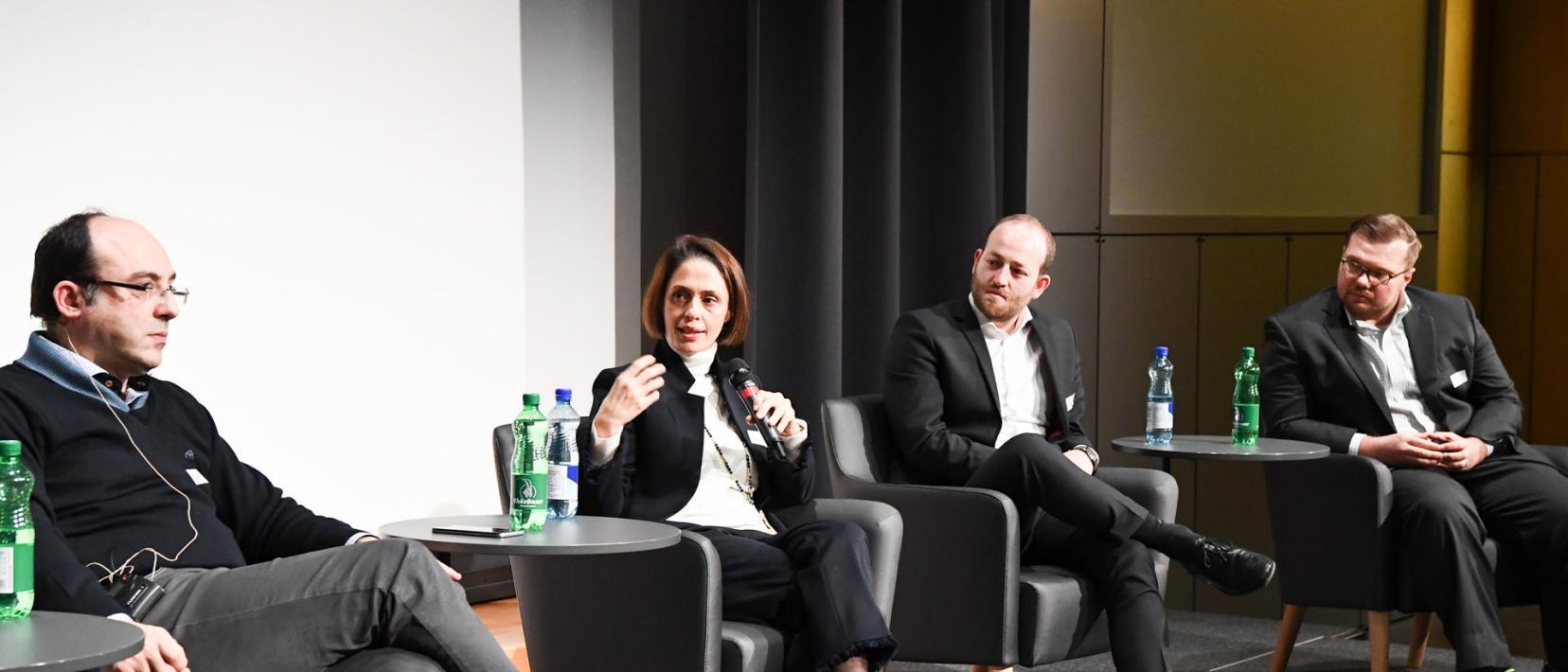LSZ Impact – Translational Medicine in Zurich

Mitteilung 22.01.2018
The first Life Science Zurich Impact conference took place on 22 January 2018 at the Technopark Zurich. The meeting was organized by the Life Science Zurich Business Network, the Division of Business and Economic Development at the Office for Economy and Labour of the Canton of Zurich, the Bio-Technopark Schlieren, and the University of Zurich.
The theme of the event – Translational Medicine – focused on the transition of new insights and discoveries from basic research and industrial development into clinical applications. Excellent and highly motivated researchers with innovative ideas often drive significant medical progress. However, they often encounter the same problem: How can they get in contact with industry, investors, and collaboration partners at an early stage of their projects to successfully orchestrate the transition from research to commercial development?
Meet the person you need to meet
At the Life Science Zurich Impact 2018, more than 300 people from industry, academia, investors, associations, R&D institutions, and public authorities attended the conference talks and visited the booths of the industry exhibition to learn about innovative products and services. The conference also featured one-to-one meetings organized by the Enterprise Europe Network Switzerland, which provided scientists from academia and industry an opportunity to present their life sciences projects to potential collaboration partners and investors. More than 150 one-to-one meetings took place, establishing new contacts, broadening networks, and generating feedback for projects.
In his opening speech, Prof. Christoph Hock (UZH) emphasized the importance and innovative power of the life sciences for Zurich. The keynote lectures gave accomplished researchers and serial entrepreneurs the chance to share their experiences with the audience. Prof. Andreas Plückthun (UZH), a co-founder of three biotech companies, highlighted the importance of basic research for innovation. In his talk «Lost in medical translation?» Prof. Ralph Müller (ETHZ) reminded the participants of the actual goal: not to lose sight of the patient. With his presentation about hackers, hipsters, and hustlers, Prof. Roger Nitsch (UZH) showed impressively how important the personal characteristics of future entrepreneurs are. The last keynote speaker, Dr. Costas Bekas (IBM), illustrated how intelligent networks can support physicians in their work with patients.
Parallel sessions with presentations of exciting early-stage projects from the areas cancer, immunology and infection, and neuroscience were at the core of the event. For example, in the field of cancer, Prof. Bernd Bodenmiller (UZH) drew up models and analyses of how complex cell phenotypes in tumors are controlled using mass cytometry. In the area of immunology and infection, Prof. Onur Boyman (USZ) discussed the development of interleukin antibodies that lead to a very successful tumor response through the formation of complexes. This novel treatment is now being tested in clinical trials. And in the neuroscience panel, Dr. Sanjay Keswani (Roche) presented how digital health technology applications can support drug development in the future.
Vision of translational medicine in 2030
The event was rounded off with a lively panel discussion featuring Prof. Effy Vayena, professor of bioethics and health policy (ETHZ), Dr. Costas Bekas, manager of the Foundations of Cognitive Computing group (IBM Research-Zurich), Nathan Hubbard, Director of Digital and PHC Partnering (Roche Partnering), and Dr. Denis Schapiro (UZH), winner of the first UZH BioEntrepreneur-Fellowship 2017. Moderated by data journalist Barnaby Skinner (Tamedia), the panel discussed the future role of technology companies such as Apple, Google, Facebook, IBM, and co. as potential health care companies. In particular, the opportunities and risks associated with the collection and exploitation of user and patient data were discussed in depth.
With his thoughts that the citizens themselves should decide on the use of their digital fingerprint, Prof. Ernst Hafen (ETHZ) closed the conference.
The successful inaugural Life Science Zurich Impact – Translational Medicine 2018 conference concluded with an apero, during which newly established contacts were further intensified. Hopefully, people will stay in touch and meet again at the next Life Science Zurich Impact conference.
Bitte geben Sie uns Feedback
Ist diese Seite verständlich?
Vielen Dank für Ihr Feedback!
Kontakt
Amt für Wirtschaft – Standortförderung